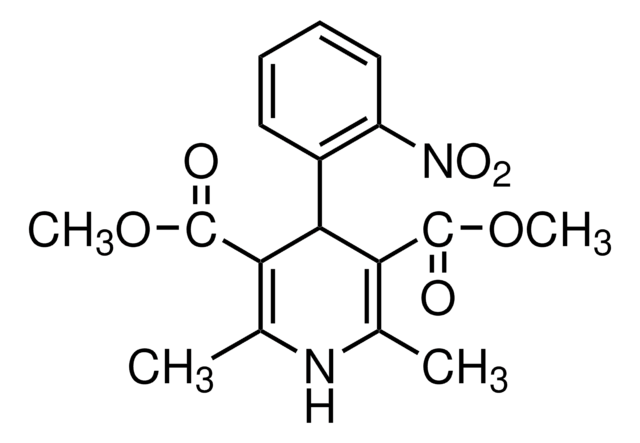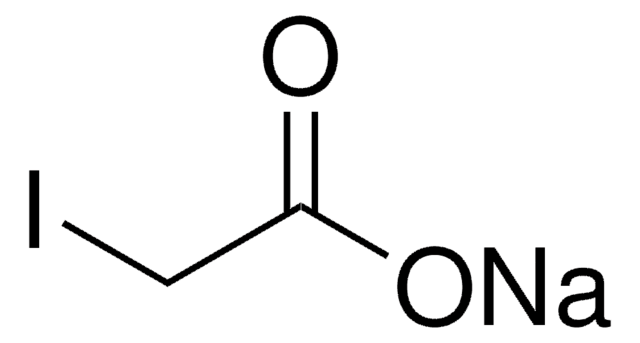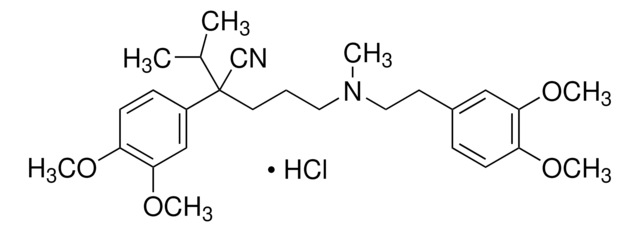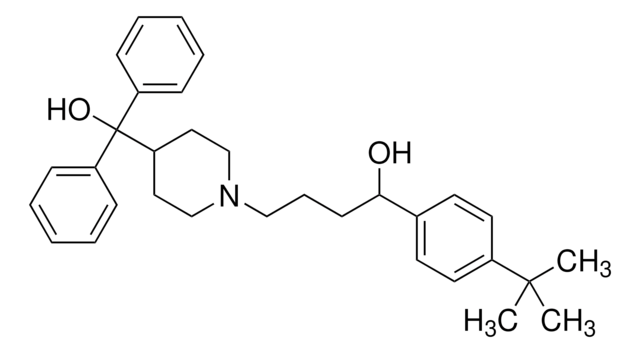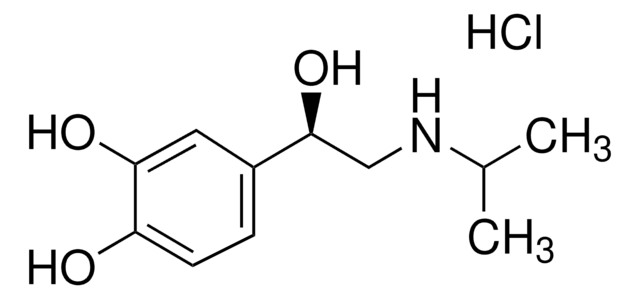M5060
E-4031
≥98% (HPLC), lyophilized powder
Synonyme(s) :
N-[4-[[1-[2-(6-Methyl-2-pyridinyl)ethyl]-4-piperidinyl]carbonyl]phenyl]methanesulfonamide dihydrochloride
About This Item
Produits recommandés
Niveau de qualité
Essai
≥98% (HPLC)
Forme
lyophilized powder
Conditions de stockage
desiccated
Technique(s)
cell culture | embryo: suitable
Couleur
white
Solubilité
H2O: soluble
Température de stockage
−20°C
Chaîne SMILES
Cl.Cl.Cc1cccc(CCN2CCC(CC2)C(=O)c3ccc(NS(C)(=O)=O)cc3)n1
InChI
1S/C21H27N3O3S.2ClH/c1-16-4-3-5-19(22-16)12-15-24-13-10-18(11-14-24)21(25)17-6-8-20(9-7-17)23-28(2,26)27;;/h3-9,18,23H,10-15H2,1-2H3;2*1H
Clé InChI
ZQBNWMFBOSOOLX-UHFFFAOYSA-N
Application
- human ether-a-go-go-related gene (hERG) blocker in human-induced pluripotent stem cell-derived cardiomyocytes (hiPSC-CMs)
- IKr blocker in long QT syndrome (LQTS) induced pluripotent stem (iPSCs) embryoid bodies
- IKr blocker in rat ventricular myocytes
Actions biochimiques/physiologiques
Caractéristiques et avantages
Code de la classe de stockage
11 - Combustible Solids
Classe de danger pour l'eau (WGK)
WGK 3
Point d'éclair (°F)
Not applicable
Point d'éclair (°C)
Not applicable
Équipement de protection individuelle
Eyeshields, Gloves, type N95 (US)
Faites votre choix parmi les versions les plus récentes :
Certificats d'analyse (COA)
Vous ne trouvez pas la bonne version ?
Si vous avez besoin d'une version particulière, vous pouvez rechercher un certificat spécifique par le numéro de lot.
Déjà en possession de ce produit ?
Retrouvez la documentation relative aux produits que vous avez récemment achetés dans la Bibliothèque de documents.
Les clients ont également consulté
Notre équipe de scientifiques dispose d'une expérience dans tous les secteurs de la recherche, notamment en sciences de la vie, science des matériaux, synthèse chimique, chromatographie, analyse et dans de nombreux autres domaines..
Contacter notre Service technique
